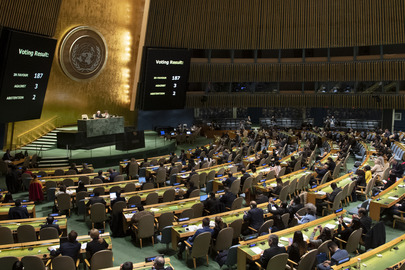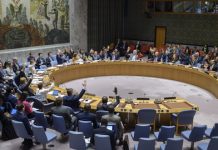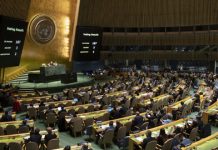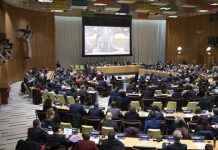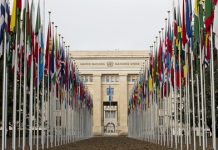First famine, now cholera and dengue fever surge hits war-torn Sudan
War in Sudan has devastated towns and cities across the country and pushed the healthcare system to collapse, just as cases of cholera and dengue fever are surging and hunger levels remain “above the famine threshold”, humanitarians have warned.
The latest alert from the UN aid coordination office, OCHA, reports more than 28,000 cases of cholera and 836 deaths in 11 states in under four months.
The current cholera outbreak gained momentum following an unusually heavy rainy season which caused flooding that contaminated water sources. Kassala is the hardest-hit state with 6,868 cases and 198 deaths, followed by Gedaref, Al Jazirah, and Northern state.
Sudan’s dengue fever surge, meanwhile, has been particularly severe in Kassala and Khartoum. As of 28 October, over 4,500 cases and 12 dengue-related deaths have been reported.
The development comes as many continue to face starvation in parts of Sudan, particularly in North Darfur state, amid escalating fighting and a blockade of El Fasher city.
The lone Government-held city in the region has seen some of the fiercest clashes since the start of the war between rival militaries the Sudanese Armed Forces (SAF) and the Rapid Support Forces (RSF) last April.
Famine conditions have already been confirmed in Zamzam camp, 15 kilometres south of El Fasher. Vital treatment for malnutrition has had to be halted there however, UN aid partners said, “because reportedly for months the parties to the conflict had blocked the delivery of food, medicines, and other essential supplies”.
Gaza: Polio vaccination successes achieved despite deadly weekend airstrikes
To northern Gaza, where more than 50 children are believed to have died, after Israeli airstrikes over the weekend.
The UN Children’s Fund, UNICEF, said that in Jabalia, the strikes destroyed residential buildings “housing many people”.
A UNICEF staff member’s vehicle was also damaged in Jabalia by what is believed to have been a drone. The staff member was not injured.
In an update on the mass polio vaccination campaign in Gaza, the UN agency for Palestine refugees, UNRWA, said that more than 94,000 children have now been vaccinated since Saturday.
The overall target is 119,000 children for this second and final round of vaccination, which was originally postponed last month amid intense Israeli bombing, evacuation orders and a lack of humanitarian access to northern Gaza.
According to UNRWA, only 30 aid trucks a day were allowed into Gaza last month.
This represents just six per cent of commercial and humanitarian supplies entering Gaza before the war, said Philippe Lazzarini, Commissioner-General of UNRWA. He warned that current aid levels “cannot meet the needs of over two million people, many of whom are starving, sick and in desperate conditions”.
West Bank: mobile health clinics provide a lifeline, says UNFPA
To the occupied West Bank, where UN-supported mobile healthcare clinics are providing a lifeline to thousands of vulnerable and isolated Palestinians who face Israeli military controls and settler violence.
UNFPA – the UN sexual and reproductive services agency – supports medical teams in Area C of the West Bank.
The teams provide medicines including diabetes drugs free of charge.
Out of 190 communities needing help, all but six receive assistance, but the UN aid agency says that it lacks sufficient funding to reach everyone.
“The sad truth is, if anyone needs any help urgently, they will probably die before they are able to get to a hospital,” said volunteer Duaa Al Shweiki.
UNFPA warned on Monday that the four mobile clinics operated by the Palestinian Medical Relief Society in Area C of the West Bank only have funding for about one year. Without fresh investment, the number of communities without mobile clinic services could rise to 96 by 2025.
Daniel Johnson, UN News
Music composed and produced by Joachim Harris. All rights reserved
Source of original article: United Nations (news.un.org). Photo credit: UN. The content of this article does not necessarily reflect the views or opinion of Global Diaspora News (www.globaldiasporanews.com).
To submit your press release: (https://www.globaldiasporanews.com/pr).
To advertise on Global Diaspora News: (www.globaldiasporanews.com/ads).
Sign up to Global Diaspora News newsletter (https://www.globaldiasporanews.com/newsletter/) to start receiving updates and opportunities directly in your email inbox for free.


